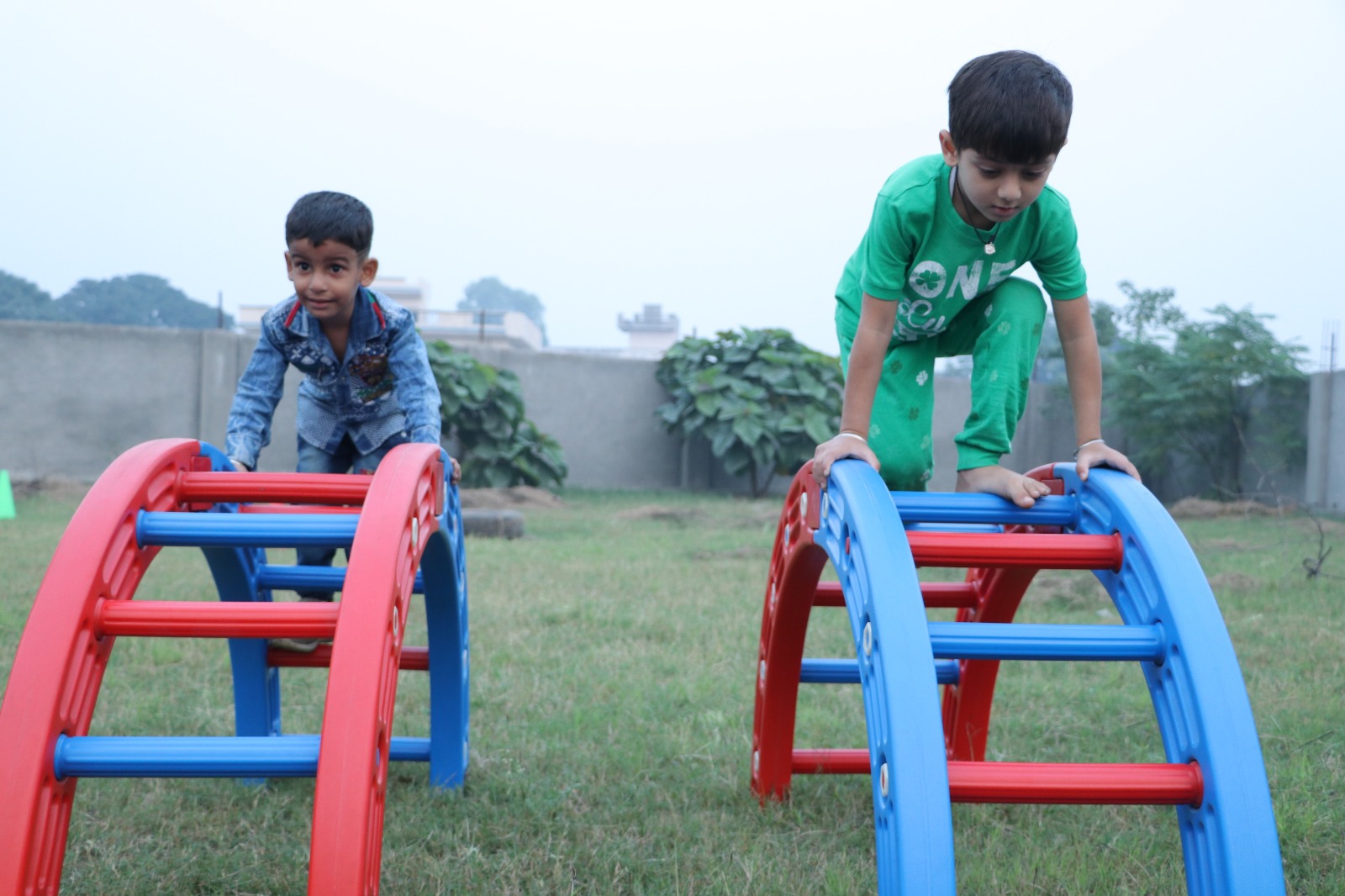Play is an activity that engages children and makes them feel happy. The right approach and guidance for different playful activities help children a lot. It makes the child learn about problem-solving, builds self-esteem, and improves their motor and social skills.
Play activities can do wonders in the case of children with special needs. However, these children do find it difficult to participate, involve and learn from play activities themselves. But with the support and care of trainers and parents, they can perform miraculously, and playing can become their favourite activity filling them with joy.
Care for Autism here enlists ta few major fun activities designed for our children to match their specific needs. Trainers and teachers involve and engage children in playful activities with children in a way that helps them to overcome physical or psychological challenges.
- Pet Therapy helps a child to play with animals and establish a bond.
It has therapeutic interventions as well. It works to improve physical, cognitive, emotional, or behavioural problems. Science proves that spending some time with pets increases certain brain chemicals that decrease blood pressure and initiate relaxation. It helps to reduce agitated behaviour.
- Sand Therapy enriches the sensory experience of children.
Sand gives them the medium to express their feelings, interests, and creative minds that children find difficult to express through communication. When emotions find an outlet through sand play, children attempt and communicate with experts. Making children talk is what experts attempt at through sand play therapy. It helps children to open up and be expressive and establish communication skills.
- Play Therapy is nothing more than adding some structure, form, and pattern to the simple play activities.
Playing with rules and following norms contribute a lot in developing and refining everything from motor skills and coordination to communication, listening, and social skills. Our trainers practice both Directive and Non-directive play therapies with children. The Directive approach needs trainers to be a part of the activity they involve a child in, and Non-directive is unstructured. Children are left free to guide themselves with fewer boundaries set around. They attempt to solve problems by themselves.
- Art Therapy makes it easy for children with special needs to communicate.
It acts as a natural medium for them to convey their ideas, emotions, and feelings. Art therapy is a medium of communication for children who are non-verbal and need some other medium to express their feelings. Art therapy breaks the hurdle for these children and allows them to communicate in comfortable settings. Trainers at Care for Autism try multiple mediums in art therapy. Some may find it exciting to play with colours, while for others moulding clay is a better option. Art therapy works comprehensively. It helps manage sensory issues, improve motor skills, recognize and respond appropriately to facial expressions and helps to imagine and think figuratively.
- Music and Dance Therapy is a way that helps autistic children enhance emotions, behaviours, and motor skills.
Music stimulates the sensory organs, and Dance-moves establish the mind-body connection. Children learn to develop relations, and it improves their social interaction. Group dances help children develop communication and social skills. Care for Autism attempts to make children involved in dance activities in many ways. Dance and music activities improve the motor skills, social skills, and body image of children.
- Picture Exchange Communication System helps less vocal children to communicate using alternatives other than speech.
It includes the use of cards to let people know what they need. Trainers at Care for Autism use it often that facilitates children get adaptive to technique. It helps motivate children and enables them to start practicing more complex tasks. They may ask and answer questions or do more advanced tasks like making comments. It is an effective measure we adopt to improve expressive and social communication.
- Yoga is much more than sitting in postures that aid the physical strength of the body.
It is a holistic approach that leads to the growth of mind, body, and soul. The relaxation techniques help autistic children self-regulate in social situations. Breathing exercises help to control their anxiety and also aid in sleep. Routine yoga exercises that trainer at Care For Autism do, bring order and consistency in children. It, no doubt, is a tedious job to prepare children for yoga aasans and make them sit in perfect posture. But we at CFA have trainers who are patient and adhere to all needs of children.
- Water activities build up the creativity and imaginary power of children.
Water is an element that has relaxing and calming properties. It attracts children for the sensory pleasures it gives. Following strict safety measures, trainers at CFA have a lot of fun with children while making them play in the water and have fun. Maintaining the water level depths as per the children need our trainers involve children in many water activities. These activities built up their vocal verbal skills, cardiovascular health, and physical and mental strength. Water floating toys we have for our children help them understand the words sink, shallow, float, and their applicability.
We at Care For Autism are on the way to incorporate many add-on-therapies for our children. These add-on therapies work manifolds when delivered parallel to treatment therapies for Autism.



